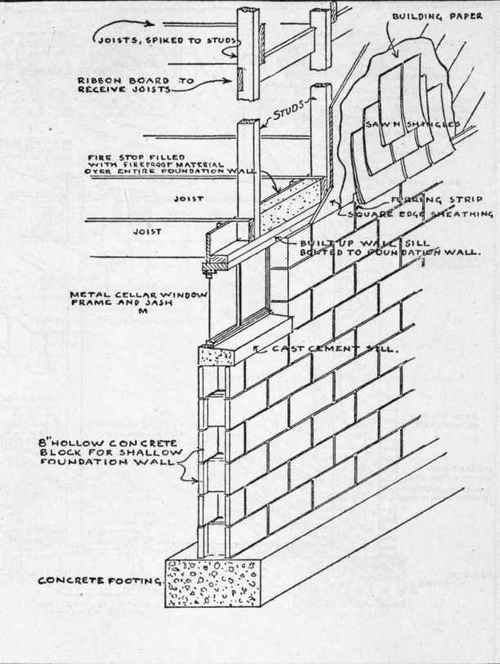Colossians 2:6–15 (16–19)
As the writer makes clear in the prolog (1:1-2), the addressees are believers, "saints [hagiois] and faithful [pistois] brothers in Christ." That is why he so readily assumes (2:6) that they already "received" Christ Jesus the Lord. His concern is what course of life they will follow now. His exhortation is that these brothers and sisters in Christ live (peripateite, literally "walk") in Christ. It is as if Christ were one of two (or more) paths (courses or directions) in which their life might go. They, having received Christ, are encouraged by the apostle to continue on their way in Christ without hesitation, backtrack, detour, or regret.

(Image source, http://scienceblogs.com/framing-science/Crossroads.jpg)
The two images that follow supplement the metaphor of the pathway from two different realms of life. First, the apostle likens "walking in Christ" to putting down roots ('errizomenoi). In other words, life in Christ should be like life in God (Psalm 1), like the person who delights in the "Torah" (teaching) of YHWH" and meditates on that teaching regularly. Such a person is "planted" like a tree on streams of life-giving water. Such a person avoids walking, standing, or sitting on that other (bad/evil) path.

(Image source, iStockphoto.com, by John Woodcock)
The second image is drawn not from the world of nature, but from the world of human artifice. People who live in Christ are being "built-up" ('epoikodomoumenoi) on Christ.

(Image source, http://chestofbooks.com/architecture/Better-Homes/images/Concrete-Block-Foundation.jpg)
The apostle says that we should not be a bunch of loose bricks haphazardly stacked on a foundation. It does not help much for the foundation to be strong if the bricks are not "firmly attached" (bebaioumenoi means strengthened [reinforced], confirmed, or the like). It is right to think of the sequence that is still preserved today in Christian rites of initiation for children and youth: baptism, instruction in the faith, and confirmation. Reception is not the one sufficient response for all of life. The journey--the growth--continues. "Be confirmed in (the/your) faith!" says the apostle. Prove the faith reliable, validate it, attest it, have it ratified! It is not enough to receive the teaching about Christ Jesus the Lord; you have to put it into practice and verify that it is true for yourself. If you do that, the final words of Colossians 2:7 will be true of you: you will be "abounding in thanksgiving." In other words, having all that you need and more (perisseuo), overflowing with thanksgiving (eucharistia).
Like the wisdom psalm (Psalm 1), which gives equal consideration to both the good path and the bad, the apostle considers the sorts of things that might cause his brothers and sisters to stray from the good path (2:8, 16, 18, 20-21). These are things that might be used to capture and carry the saints down the path of slavery (sulagogon). Especially worrisome to the writer are "philosophy and empty deception," ways of life that are based on human tradition and how the world supposedly works, rather than on Christ. These other roads are not real roads. These false paths are, in reality, nothing of consequence. Any of them that might have been powerful enough at one time to attract and hold the saints have now been subjected to the rule of Christ. The holding power of human tradition and norms has been removed--de-clawed, de-fanged, and otherwise decommissioned with respect to our mode of living by our baptism (a spiritual circumcision that cut us off from the power of the flesh). The physical rituals that sometimes entice our interest as alternative paths are but shadowy outlines and weak imitations of powerful spiritual realities--i.e., food, drink, new moons, festivals, and sabbaths can only trip us up now if we allow them to be used to judge (krino) or condemn us (i.e., allow someone other than Christ to be our Lord). They are puny approximations. Christ is the reality. In the same way, we should not allow anyone to steal our prize (katabrabeuo).

(Image source, http://blog.masslive.com/leftbank/2008/05/small_051027_sn_UmpireTN.jpg)
There are those who will want to rule against us like a bad umpire whose ability to take away the win is limited to our acquiescence to his bad calls. In the day when this epistle was written, such umpires were calling the saints "out" (or "foul") when they did not make a show of humility (through physical abuse of the body; see verse 23) or show proper respect to angels, or put enough credence in elaborate visions.

(Image source, http://thebsreport.files.wordpress.com/2009/06/blind_umpire.jpg)
Such people, the apostle says, are too proud of their worldly intellect. They are ordering people not to handle, taste, or touch material things, as if such things matter. Do not listen to them or you will end up on the wrong path.
The right path involves grabbing hold of Christ, who is the head from whom the whole body--being held together and supplied by joints ('aphon, "connections") and fastenings (sundesmon)--grows with the growth that only God can give (see Ephesians 4:15-16 and Colossians 1:6, 10).
What sort of growth is that? It is the sort of weedy growth exhibited by the lilies of the field (Matthew 6:28, Luke 12:27), which receive and provide grace and beauty without toil. It is the sort of growth exhibited by the tiny mustard seed, which matures from the smallest of seeds to the largest of trees (Matthew 13:31-32, Luke 13:19). It is like the farmer's seed that falls on good soil (Mark 4:8), multiplying 40X, 60X, or even 100X. It is the sort of growth spurt that newborn babies have that first insatiable year of milk craving (1 Peter 2:2). It is the sort of growth spurt that a child who is favored and specially marked by the Holy Spirit will enjoy, gaining strength, wisdom and grace (Luke 1:80 and 2:40). But it is also the sort of growth enjoyed by the church in Acts, when "the word of God continued to spread [and] the number of the disciples increased greatly" (Acts 6:7, NRSV; also Acts 12:24, Acts 19:20). It is the sort of growth you see on a major construction site when the steel starts to go up (Ephesians 2:21). It is the sort of growth that requires multiple workers, often workers who are at odds with one another as well as those who are working in cooperation, always acknowledging and "overflowing with thanksgiving" always because it is God who actually provides the growth. One plants and another waters, but it is God who grows stuff (1 Corinthians 3:6-7). It is the sort of growth that results in more righteousness, good works, and stronger faith and an increase in all the other fruit of the Spirit (2 Corinthians 9:10, 10:15; Colossians 1:6, 10). It is the sort of increase that happens despite the odds against it, as in the case of the Hebrew slaves in Egypt. In other words, it is the sort of growth that Pharaoh and his minions cannot kill (Acts 7:17), especially as the time grows near for deliverance.
Being on the right path means being on the path of growth in Christ, a path of supernatural growth. It is not natural. But neither is it artificial. The sort of growth imagined by Paul for the church, organic but supernaturally strong (not artificial), is had only by prayers such as the one Jesus taught his disciples and the sort of desire for the kingdom that he also cultivated in them.





No comments:
Post a Comment
Pastor Greg appreciates your comments on this week's scriptures!